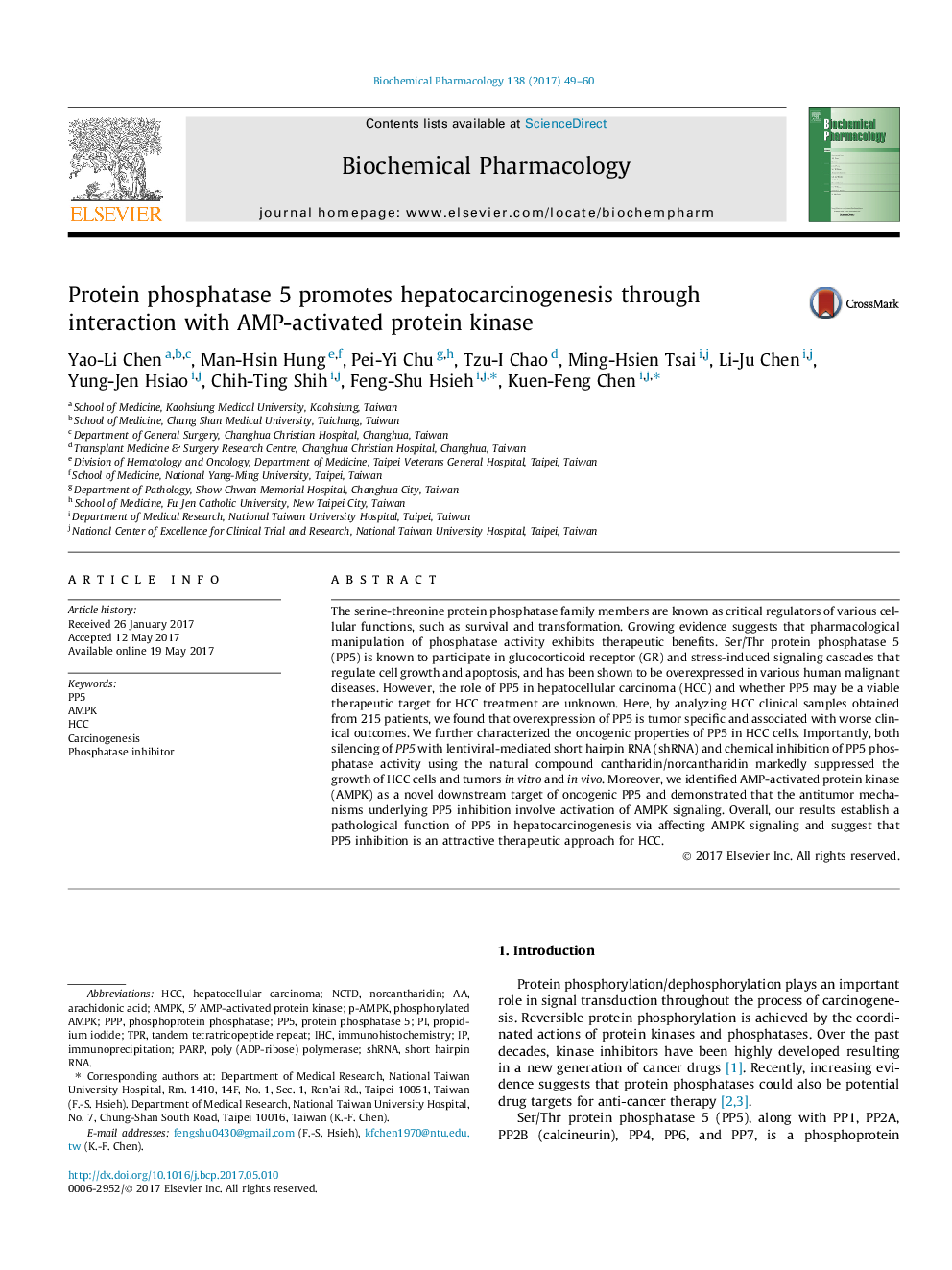| Article ID | Journal | Published Year | Pages | File Type |
|---|---|---|---|---|
| 5552024 | Biochemical Pharmacology | 2017 | 12 Pages |
The serine-threonine protein phosphatase family members are known as critical regulators of various cellular functions, such as survival and transformation. Growing evidence suggests that pharmacological manipulation of phosphatase activity exhibits therapeutic benefits. Ser/Thr protein phosphatase 5 (PP5) is known to participate in glucocorticoid receptor (GR) and stress-induced signaling cascades that regulate cell growth and apoptosis, and has been shown to be overexpressed in various human malignant diseases. However, the role of PP5 in hepatocellular carcinoma (HCC) and whether PP5 may be a viable therapeutic target for HCC treatment are unknown. Here, by analyzing HCC clinical samples obtained from 215 patients, we found that overexpression of PP5 is tumor specific and associated with worse clinical outcomes. We further characterized the oncogenic properties of PP5 in HCC cells. Importantly, both silencing of PP5 with lentiviral-mediated short hairpin RNA (shRNA) and chemical inhibition of PP5 phosphatase activity using the natural compound cantharidin/norcantharidin markedly suppressed the growth of HCC cells and tumors in vitro and in vivo. Moreover, we identified AMP-activated protein kinase (AMPK) as a novel downstream target of oncogenic PP5 and demonstrated that the antitumor mechanisms underlying PP5 inhibition involve activation of AMPK signaling. Overall, our results establish a pathological function of PP5 in hepatocarcinogenesis via affecting AMPK signaling and suggest that PP5 inhibition is an attractive therapeutic approach for HCC.
Graphical abstractDownload high-res image (129KB)Download full-size image
